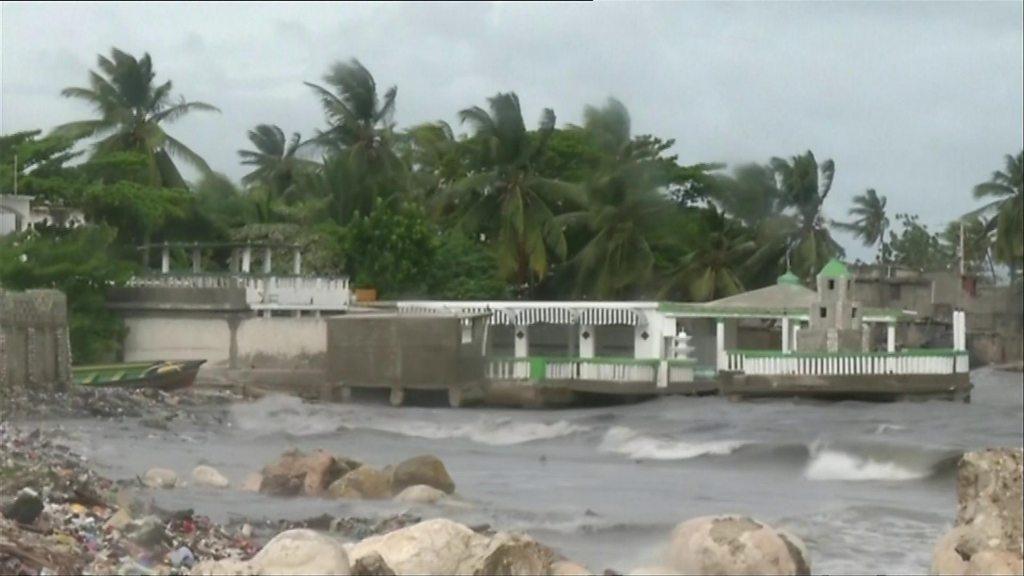Hurricane Matthew: Haiti resilience tested once again
- Published
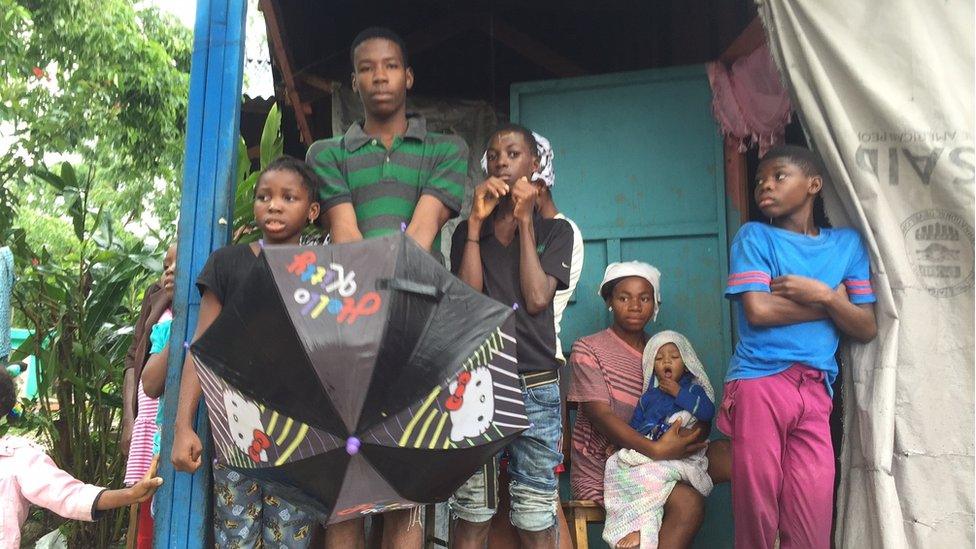
Ten thousand Haitians are in shelters, the UN says
We crossed the border from the Dominican Republic and the skies darkened and the heavens opened, dumping more misery on to a country that has suffered so much.
As we drove through the first small villages on the way to the capital Port-au-Prince, we could see the damage the hurricane was still inflicting.
The roads were already awash with rushing muddy floodwaters, the people we passed were trying to cover themselves as best they could, but they were struggling just to move against the pouring rain.
Haiti's capital is disorientating. You lose all sense of being on a tropical island in the Caribbean. It is a city crammed with people. Its broken buildings, sewage and rubbish-strewn streets are tough and the bad weather brought by the storm only makes them more inhospitable, but life goes on.
We drove past busy street markets, people loaded on their bikes or walking with their shopping. This is a country used to disaster. It looked like the Haitians of Port-au-Prince were determined to carry on.
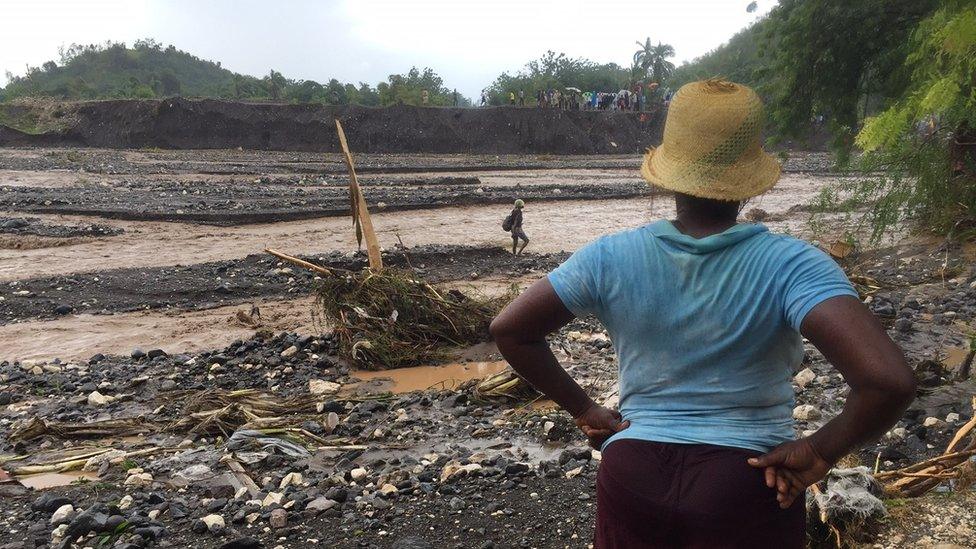
A bridge connecting a remote part of Haiti has been washed away
We only began to see the real destructive force of Hurricane Matthew once we moved towards the south-west of the country.
Trees fallen, banana crops uprooted and flattened, houses under water and men and women trying to get the debris out of the way.
It was noticeable how the people we passed were coping alone. There were no army or police around to help. Even the aid agencies are struggling to move around this damaged corner of the country.
As if the hurricane had not hurt the people and their lives enough, a crucial route to those hit hardest by the storm was destroyed. A bridge was washed away, leaving a wide muddy river between those who survived and the people stricken in the south.
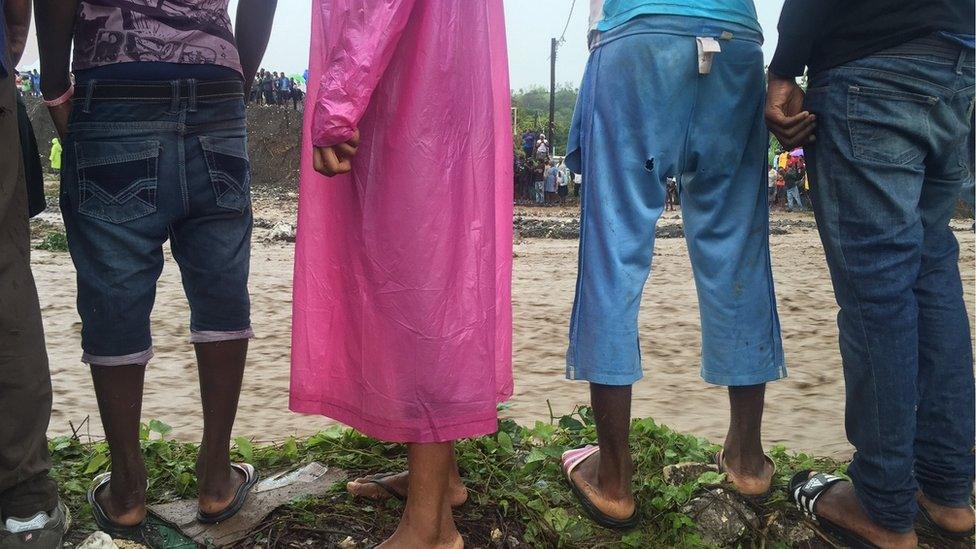
Haiti is one of the world's poorest countries
The people in this town split by the rushing brown river were trying to do their bit too. A man with a shovel hopelessly digging a hole in the ground, others chopping away trees that had fallen in the road.
We were on the river bank looking at the misery, only to be told we were actually standing where four families' homes had stood just days before. More rain fell on now homeless people. A mother told us her children had just started school and their new uniforms had been washed away.
Among the tears from those who lost their lives to the river, there was also laughter and cheers from people on the banks as others tried to cross. In the busy street, a bus had its doors open playing music, reminding us where we were.
I had been told before coming the people here were resilient; they will need to be to cope with this new natural tragedy.
- Published4 October 2016
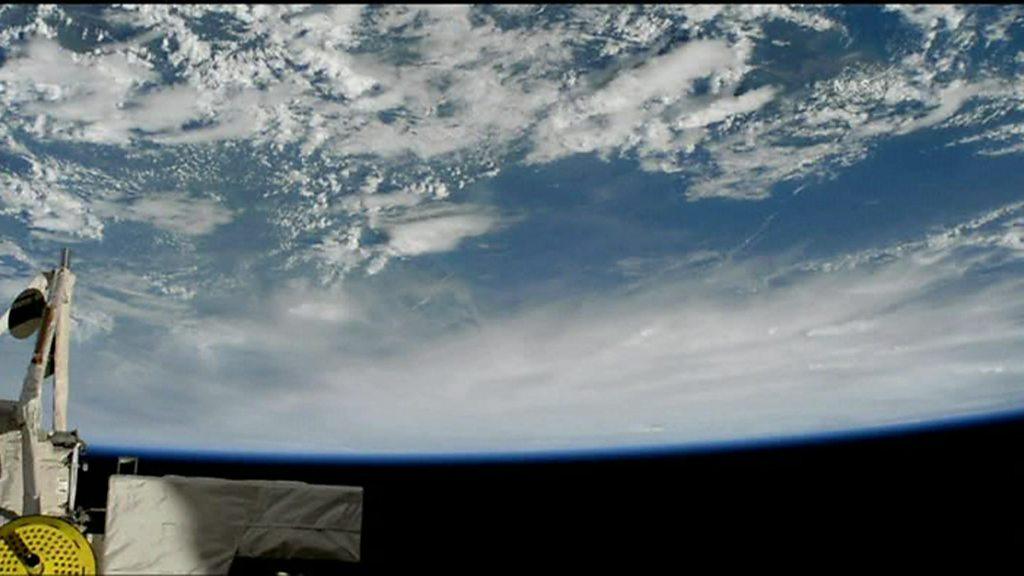
- Published6 October 2016
- Published3 October 2016
